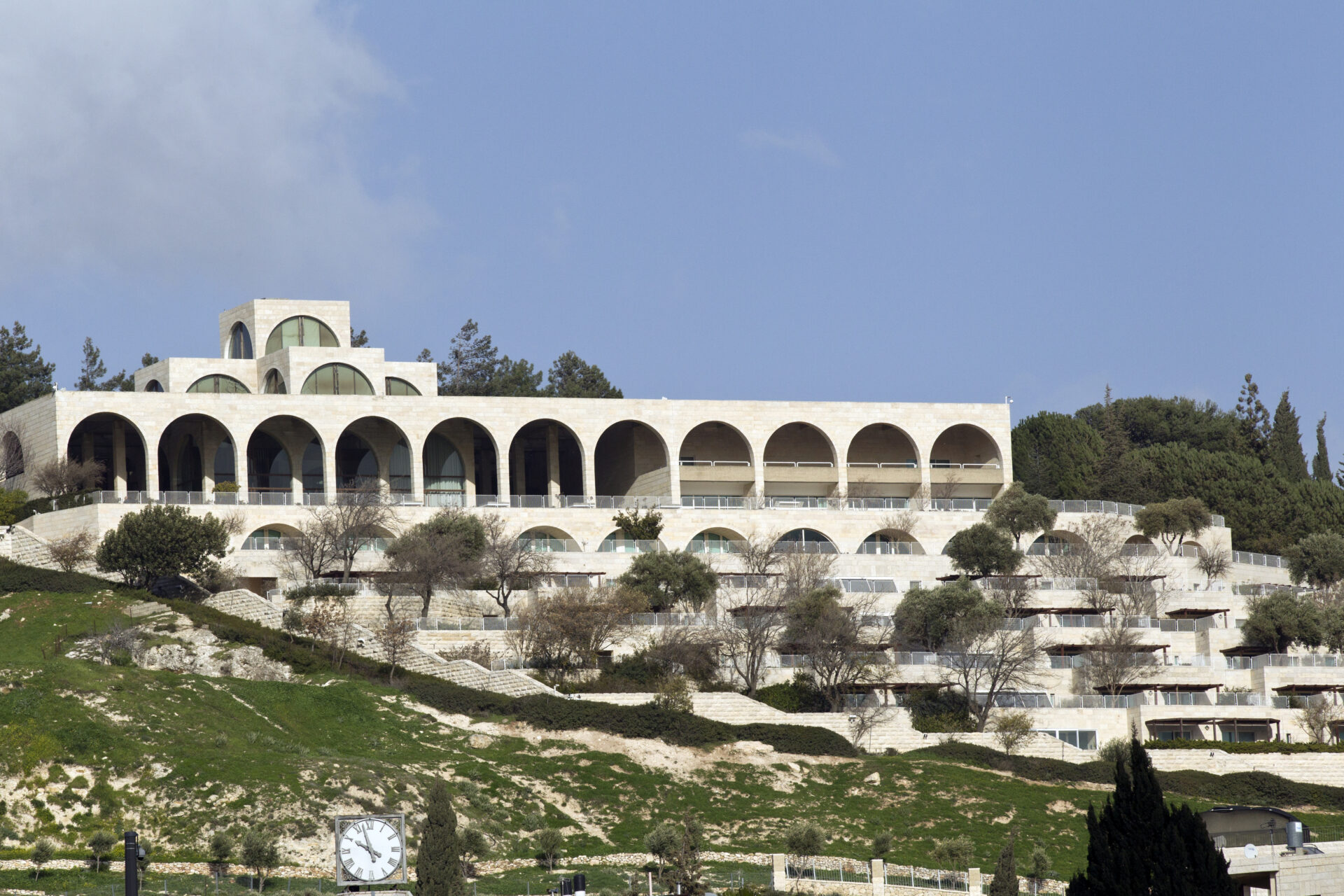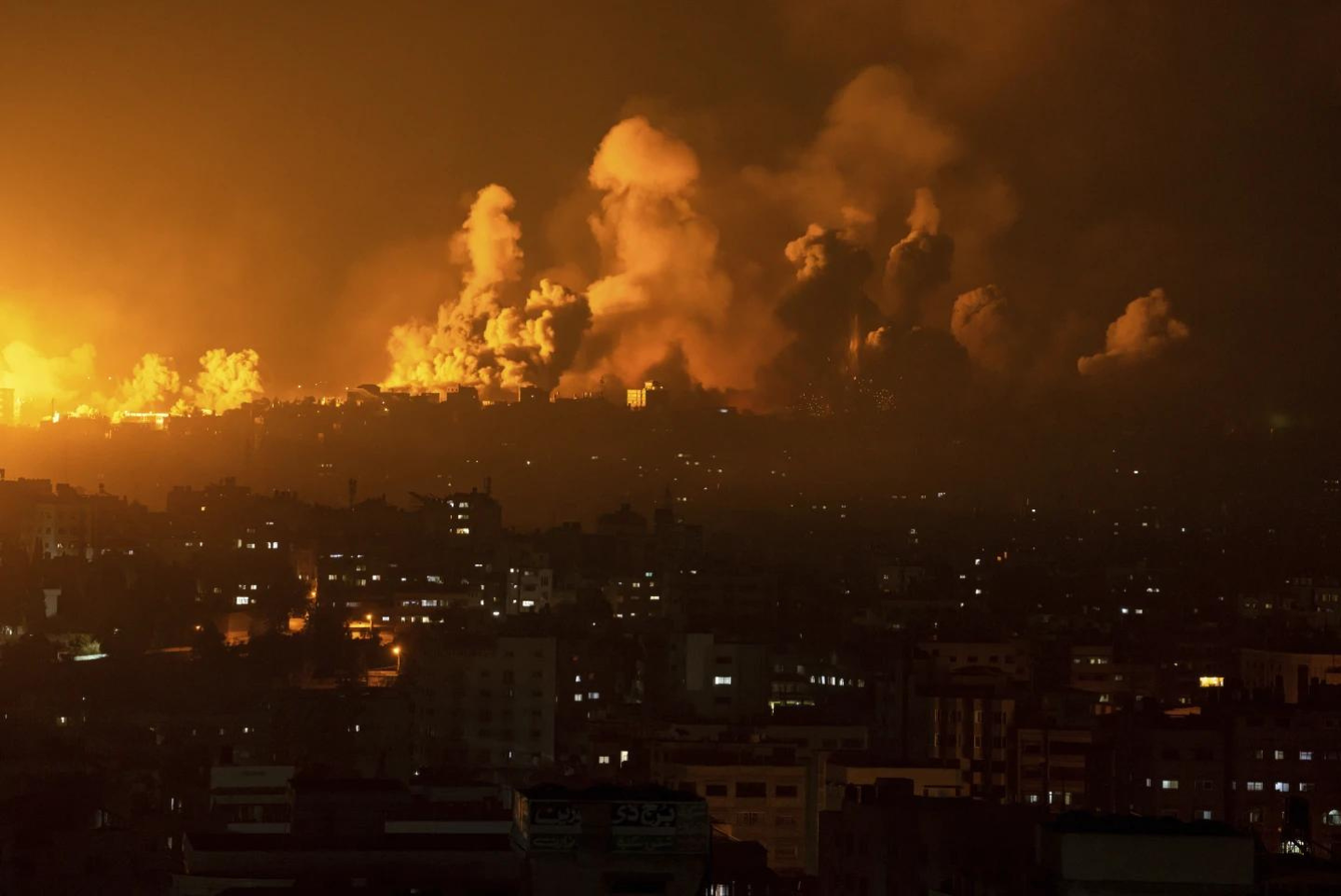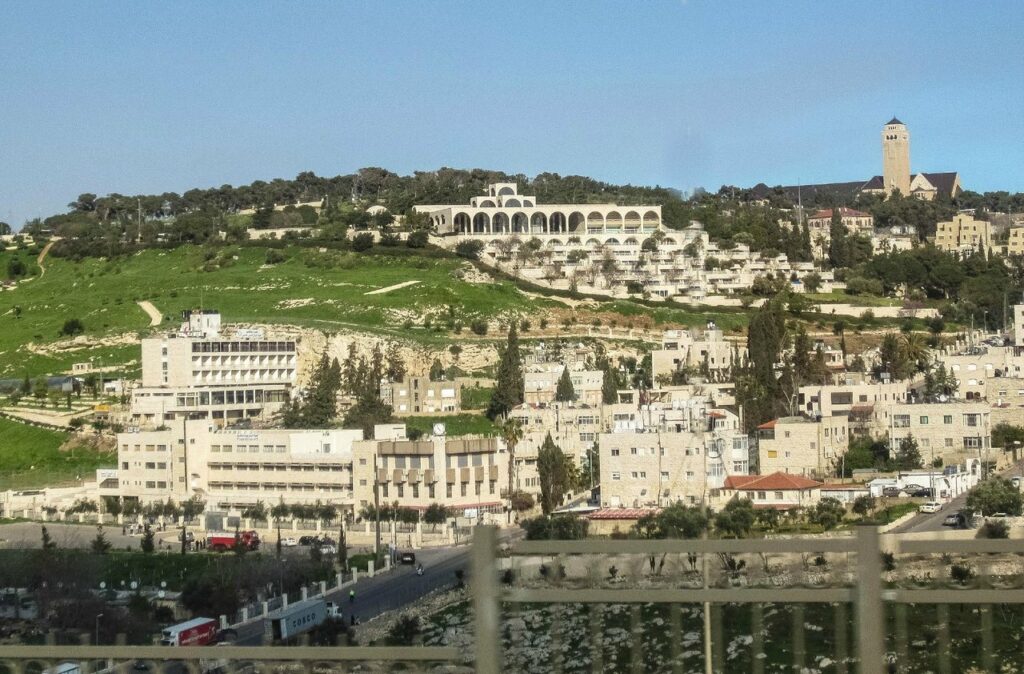
Following missile attacks, more than 700 casualties and Israel’s declaration of war, all residing at BYU’s Jerusalem Center for Near Eastern Studies remain safe.
According to the Center’s official statements, the Jerusalem Center “remains safe, secure and peaceful for those living there.” The Center began posting daily security updates online on Saturday, Oct. 7.

“Rocket attacks from militants in Gaza continue and sirens sounded in Jerusalem Monday afternoon. Everyone at the Center, including students, moved to the Center’s shelters for the short duration of the attack,” the security update posted Monday, Oct. 9 at 8:07 a.m. MDT said.
The Center’s alarms were triggered by rockets on a trajectory toward the western-most parts of the city and the greater Jerusalem area. The security update reported disturbances in Palestinian neighborhoods in Jerusalem and a heavy security presence throughout the city, but areas surrounding the Jerusalem Center are “calm but tense.”
BYU religion professor Eric Huntsman is currently staying at the Jerusalem Center with his family. Huntsman posted updates across multiple social media platforms that he and everyone at the Center is safe and secure.
“Our students are in good spirits, and it is a privilege to be taking care of them in this situation. Jerusalem itself has had alarms, but it is secure,” Huntsman said Oct. 7 on X, formerly known as Twitter.
Over the weekend residents stayed inside, and day-to-day travel outside of the Center will be evaluated as the conflict unfolds. Students will remain inside the Center through Tuesday.
Kimberly Callister, a senior at BYU studying history, studied at the Jerusalem Center from May 3 to Aug. 17 as part of the group of students that most recently came home from the Center.
Callister and the students she was with never used the bomb shelters, but she described the bomb shelters as normal rooms with metal walls.
“They’re just like a normal room, and you go through this huge metal door with a lock on it, so you can close it,” Callister said.
Callister said the bomb shelters are multipurpose. Outside of threatening times, they double as laundry rooms and nursery classrooms for church on Sundays.

Throughout Callister’s stay at the Center, she said she felt safe and well-informed. Each student is given a phone with a tracking system, so those at the Center can track of each student’s location at all times. Safety procedures and security measures are spoken about in the U.S. prior to departure and again once the students arrive in Jerusalem.
Callister travelled with student Annabelle Redding, a sophomore studying English from Rhode Island. Redding recalled a couple of times where she felt unsafe, but she never felt directly afraid or threatened.
“The Jerusalem Center is very blunt about the dangers associated with traveling in and around Israel for months at a time. … I think if anything, the Center overprepares you for the possibilities of the worst-case scenarios that could happen. When I got to the Center with the rules in place, I felt very safe in and around Jerusalem, and felt as though I was very informed safety-wise,” Redding said.
Redding recalled a time where a small group of students were scheduled to tour the Dome of the Rock, but were deterred when a group of drunken men tried to force themselves inside the holy site.
“Nothing newsworthy came of it, but tensions were rising among the men and the soldiers, so the students had to return back to the Center and reschedule their appointment,” Redding said.
Both Redding and Callister said the Jerusalem Center takes safety seriously, and they felt informed of security issues their entire trip.
At this time, academic classes continue at the Center. The security updates said that along with classes, there will be student-organized activities and study periods all taking place within the Jerusalem Center.




